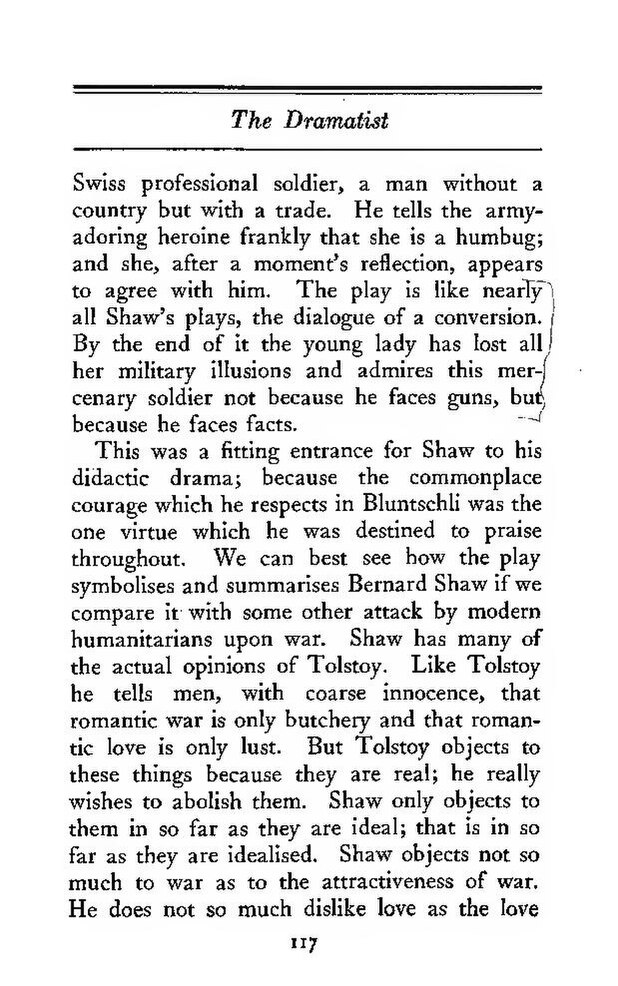Swiss professional soldier, a man without a country but with a trade. He tells the army-adoring heroine frankly that she is a humbug; and she, after a moment's reflection, appears to agree with him. The play is like nearly all Shaw's plays, the dialogue of a conversion. By the end of it the young lady has lost all her military illusions and admires this mercenary soldier not because he faces guns, but because he faces facts.
This was a fitting entrance for Shaw to his didactic drama; because the commonplace courage which he respects in Bluntschli was the one virtue which he was destined to praise throughout. We can best see how the play symbolises and summarises Bernard Shaw if we compare it with some other attack by modern humanitarians upon war. Shaw has many of the actual opinions of Tolstoy. Like Tolstoy he tells men, with coarse innocence, that romantic war is only butchery and that romantic love is only lust. But Tolstoy objects to these things because they are real; he really wishes to abolish them. Shaw only objects to them in so far as they are ideal; that is in so far as they are idealised. Shaw objects not so much to war as to the attractiveness of war. He does not so much dislike love as the love
117
